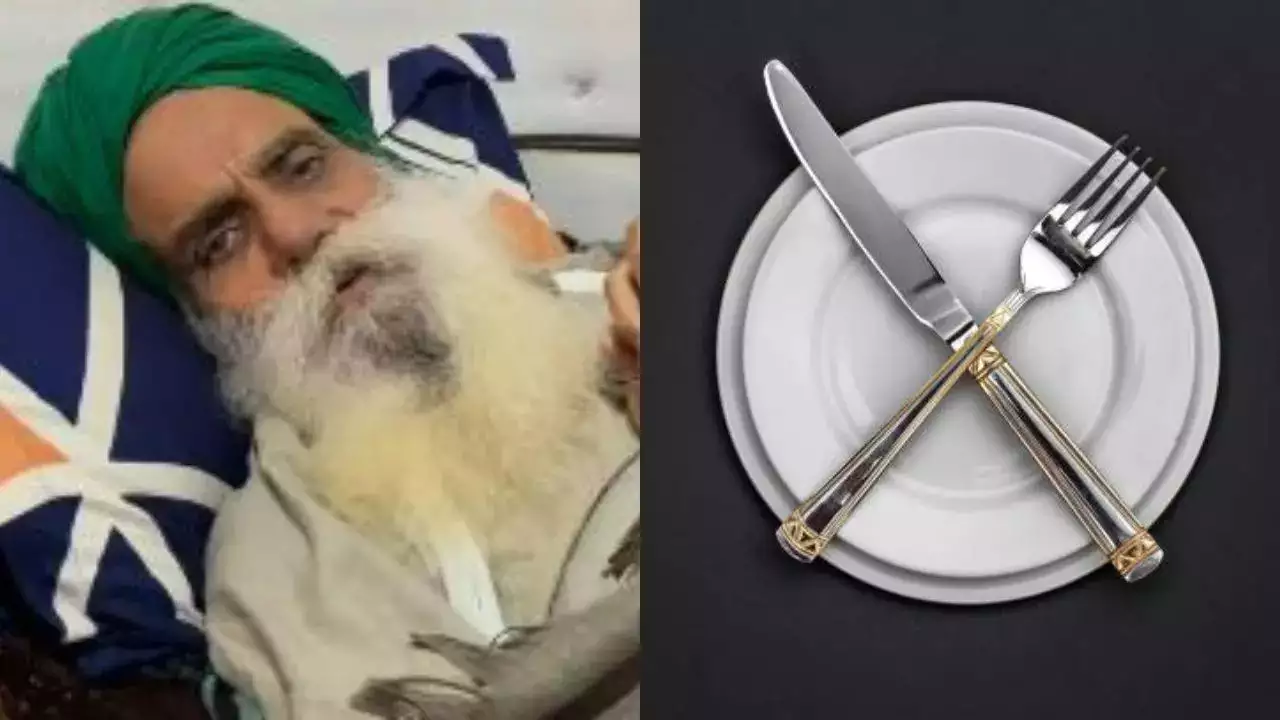
A human can survive for days without water and even weeks without food due to adjustments to metabolism and energy consumption
Seventy-year-old farmer leader Jagjit Singh Dallewal’s hunger strike has entered its 43rd day in a bid to push the federal government to accept the demands of protesting farmers. According to news reports, doctors say Dallewal’s condition has deteriorated and that he is "unable to speak," but he and his supporters have refused medical aid so far.
Dallewal began a hunger strike as part of a protest that began in February last year when thousands of farmers gathered at the border between Punjab and Haryana. Their demands include assured prices on certain crops, loan waivers, and compensation for the families of farmers who died during earlier protests.
How long can you survive without eating food?
According to experts, consumption of food and water is extremely essential. While your body needs energy from food and hydration from water to function properly, many systems in your body work optimally with a varied diet and proper water intake daily.
Doctors say a human body can survive for days without water and even weeks without food due to adjustments to metabolism and energy consumption.
Why is the survival time period different for everyone?
When your body does not receive enough calories to carry out its usual life-supporting functions, your body goes into starvation mode. It happens when the food intake gets severely restricted or if your body is not able to digest food to absorb nutrients.
Experts say when your body gets severely deprived of calories, it begins to function differently to lower the energy it burns. If nutrition is not restored, starvation can lead to the loss of life.
While there is no rule as to how long you can live without eating, experts believe it depends on an individual’s differences and circumstances. With no food and no water, the maximum time the body can survive is thought to be around a week, and with only water and no food, it may extend up to 2-3 months.
Over time, a severely restricted food intake can reduce the lifespan.
How can you live without food for days?
While the idea of surviving without eating sounds difficult, it can actually lead to being irritable and low on energy. Doctors say your body adjusts itself if you engage in a short-term fast or are unable to access food and water for very long stretches of time. Your body takes around 24 hours to change how it produces energy.
When you eat normally, your body breaks down food into glucose, which gives you energy. However, when you stop eating, in the first 24 hours, the glucose reduces, and the body converts glycogen from your liver and muscles into glucose. As time passes, without food, both glucose and glycogen get depleted, and your body begins to break down muscle tissue to provide energy. And to prevent muscle loss, it begins to rely on fat stores to create ketones for energy.
How much weight do you lose in a hunger strike?
Doctors say during the first week of a hunger strike, an average person would lose around 1-2 kg of body weight daily. Most of this weight loss is due to dehydration and electrolyte imbalance. However, with more time, changes in the body usually lead to weight loss slowing down to an average of 0.3 kilograms every day.
The more fat stores available, the longer a person can typically survive during starvation.
According to studies, those undergoing a hunger strike should be monitored closely for severe side effects of starvation after losing 10 per cent of their body weight or having a BMI of 16.5 or less.
Get Latest News Live on Times Now along with Breaking News and Top Headlines from Health and around the world.
